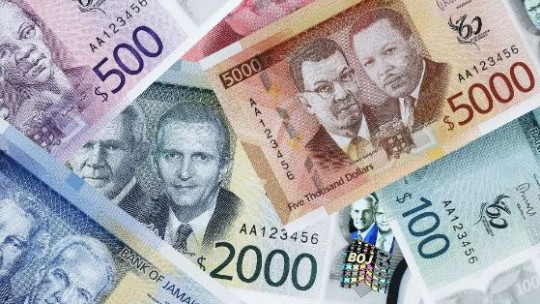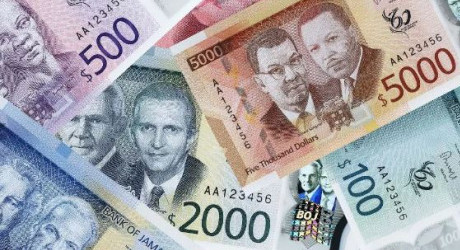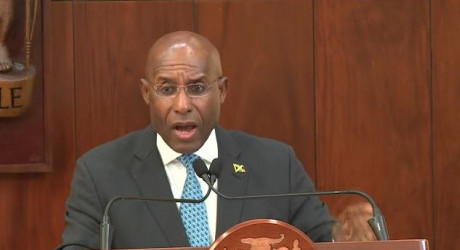.png)
00:00
00:00
00:00
Development Economist Dr. Chris Stokes, financial commentator Orville Johnson and Minimum Wage Advisory Commission member St. Patrice Ennis
By Prince Moore
Development economist Dr. Chris Stokes has said despite the increase, the national minimum wage is still not in the range of a liveable wage.
Effective June 1, the national minimum wage will be increased from $13,000 to $15,000 per 40-hour work week.
Prime Minister Andrew Holness made the announcement Thursday during his contribution to the Budget Debate in the House of Representatives.
Mr. Holness said this represents a 15 per cent increase.
The minimum wage for industrial security guards will also increase from $14,000 to $15,000 per week.
While Mr. Stokes is not opposed to the increase, he believes it is a symbolic adjustment.
"Folks can't live on $15,000 a week. It's just, you know, for somebody who is supposed to be on the right, it's an interesting approach, because usually economists on that side say that let minimum wages fall where they may. But he has been pushing that as part of his social agenda. But it still remains, if persons are making that, frankly, it's just still way below what a liveable wage is," he argued Thursday while speaking on Radio Jamaica's Beyond the Headlines.
Engaging low income earners
Financial commentator Orville Johnson believes the minimum wage increase is an attempt by government to engage low income earners.
"It's an attempt to kind of balance two things, because, yes, the story coming out of the street is that we're not feeling the prosperity, we see the nice projects, but where is it for us? So it's an attempt to give persons at the bottom end of the scale a little bit more."
"But the challenge he faces is those who he again addressed as working poor, they have a challenge just being able to absorb that," he noted.
The commentator suggested that the increase was also a response to the position taken by Opposition Leader Mark Golding that instead of a minimum wage, there should be a liveable wage.
"So [the Prime Minister] has made a judgment call, and that's what it is. It's difficult. It's never going to be an easy one," Mr. Johnson said, calling the move a delicate balance.
Minimum Wage Advisory Commission
In the meantime, a member of the Minimum Wage Advisory Commission said the body is now in limbo as it was doing assessments to make recommendations to the government on a minimum wage increase.
St. Patrice Ennis, who is also President of the Jamaica Confederation of Trade Unions, said no consultation was done on the increase announced Thursday by the Prime Minister.
He said the Minimum Wage Advisory Commission will be meeting with the Minister of Labour to determine how to proceed.
"I still believe that we can make an assessment and make the recommendation and it's up to the government to see whether it's necessary at this time. But I think the commission has to meet and then get some directive from the government in terms of what our objective should be this time around.
Mr. Ennis said the commission is unaware of what data the government used to arrive at the announced 15 per cent increase in the national minimum wage.
"I don't know if there was any further work or any empirical data drawn on to inform decision, but whatever it is, the commission can, under the direction of the minister, go and do its analysis and make a recommendation. As you know, it is always up to the government to accept or reject or even vary the recommendation of the commission," he pointed out.
Mr. Ennis was also a guest on Beyond the Headlines on Thursday.?????






.jpg)



 All feeds
All feeds







